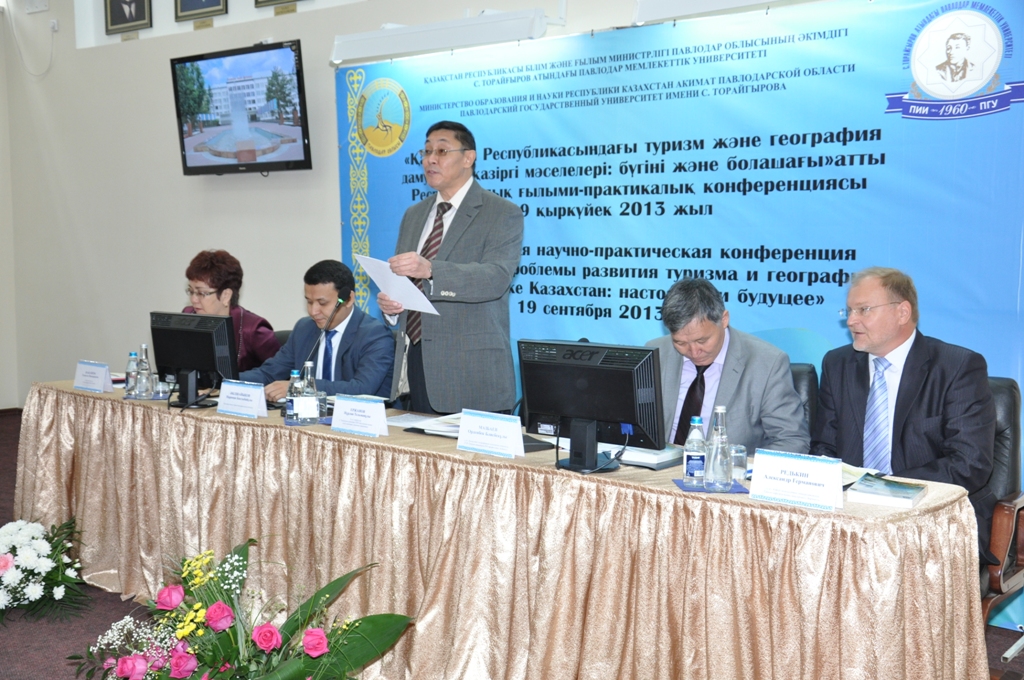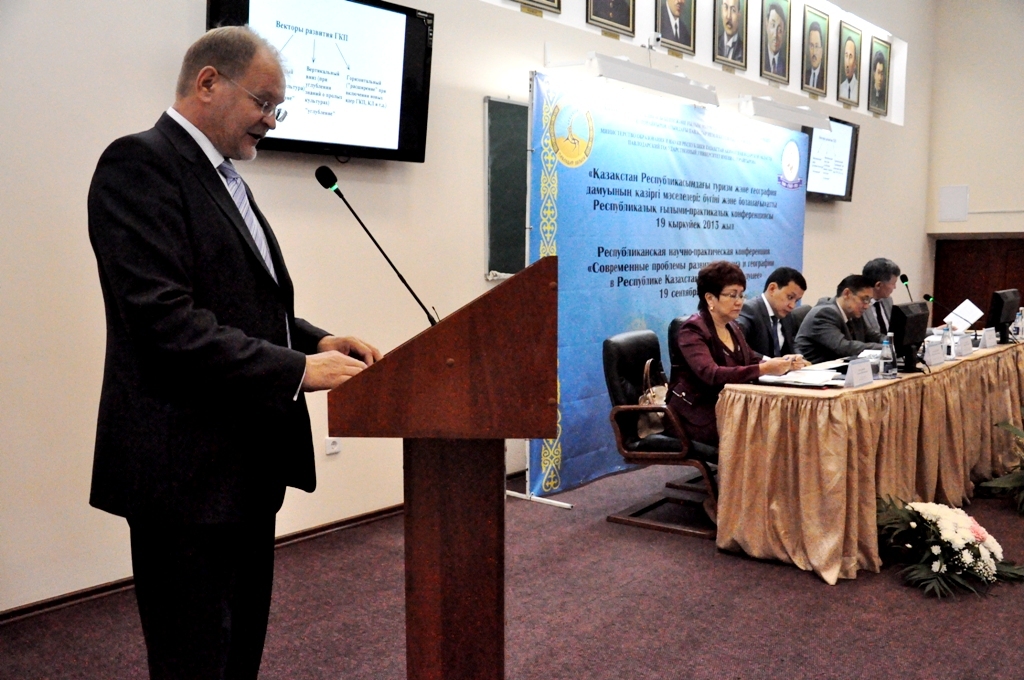The national scientific and practical conference entitled “Modern Problems of Tourism and Geography Development in the Republic of Kazakhstan: the Present and Future” was held at S. Toraighyrov Pavlodar State University on September 19, 2013.
 |
|
 |
 |
The Vice-rector for Research and Innovation of S. Toraighyrov PSU, Doctor of Biological Sciences, Professor Nurlan Yerzhanov noted in his opening speech that tourism is one of the factors of global integration processes, and tourism as an industry has become an important sector of the national economy. “Kazakhstan has an immense potential for tourism development. Rich natural resources and a unique culture of the nomadic people enabled our country to integrate and take its place in the international tourism market”, said Nurlan Yerzhanov.
The Conference was attended by many distinguished guests: the Head of the Department of Tourism of Altay State University, Candidate of Geographic Sciences, Aleksandr Redkin, the Dean of the Faculty of Tourism and Applied Informatics of Omsk State Institute of Service, Candidate of Pedagogical Sciences, Professor Oleg Luchko, the Head of the Department of Tourism of the Pavlodar region Nariman Abilshaikov.
The Chairman of Kazakhstan National Geographic Society, Doctor of Geographic Sciences, Professor of L.N. Gumilyov ENU Ordenbek Mazbayev spoke about the conceptual issues of tourism development in the Republic of Kazakhstan at the plenary session. He also gave a presentation for the teaching staff and students of the Department of Geography and Tourism entitled “Antarctica through the Eyes of Travelers and Scientists”. He told about the first Kazakhstani automobile scientific expedition to the South Pole. Owing to this research, a great contribution to geographical science development was made. In the future, Kazakhstan National Geographic Society plans to participate in signing of the Antarctic Treaty for further research of the Antarctica for peaceful purposes.
The participants of the Conference discussed the following issues: tourist potential of the Pavlodar region, modeling and regulation of business processes in the field of tourism, the problems of onomastics in Kazakhstan and adjacent territories, and modern technologies in teaching geography at schools and universities.
A collection of articles was published after the Conference.






